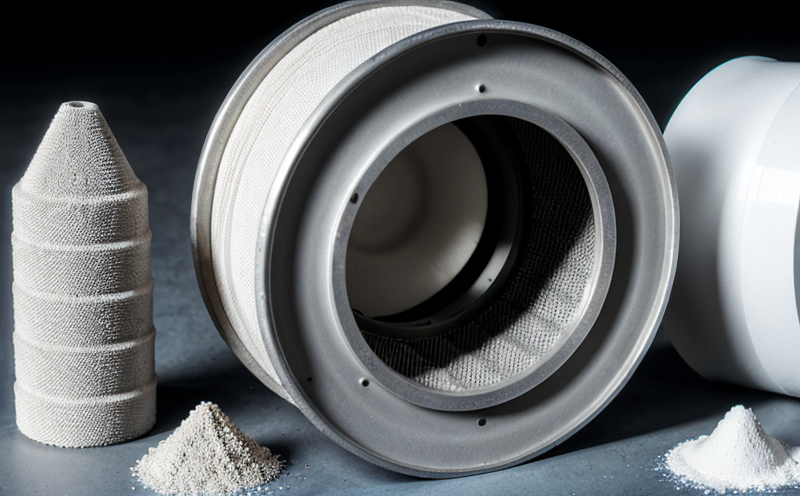IEC 61174 ECDIS Certification Testing
The International Electrotechnical Commission (IEC) standard IEC 61174 specifies the requirements for electronic chart display and information systems (ECDIS) used in maritime navigation. Compliance with this standard is essential for ensuring safety, reliability, and interoperability of ECDIS equipment across international waters.
The testing process involves rigorous evaluation to validate that the ECDIS hardware and software meet stringent requirements set forth by IEC 61174. This includes functional tests, performance evaluations, and validation against international standards such as ISO 25963 and EN 1086-1.
Our laboratory specializes in providing comprehensive ECDIS certification testing services to marine equipment manufacturers and suppliers worldwide. We offer a range of services that cater specifically to the needs of quality managers, compliance officers, R&D engineers, and procurement teams involved in the development and production of ECDIS systems.
The testing process begins with a thorough review of the design specifications and technical documentation provided by clients. This ensures alignment with IEC 61174 requirements before proceeding to actual hardware and software testing. Our team utilizes state-of-the-art facilities equipped with advanced instrumentation to conduct tests that simulate real-world operational scenarios.
One critical aspect of ECDIS certification is the evaluation of hardware components, particularly those manufactured using additive manufacturing techniques. Additive manufacturing materials used in this context must undergo stringent testing to ensure they meet the mechanical and environmental performance criteria outlined by IEC 61174. This includes assessing factors such as durability under extreme conditions, resistance to corrosion, and ability to withstand temperature fluctuations.
Our laboratory employs a variety of techniques for additive manufacturing material testing, including but not limited to tensile testing, hardness testing, and immersion testing in saltwater solutions. These tests help determine the suitability of different materials for use in ECDIS systems, ensuring they can operate reliably even in harsh marine environments.
Another important component of our ECDIS certification testing service is software validation. This involves verifying that the ECDIS software complies with IEC 61174 specifications and performs accurately across various operating conditions. Our team uses industry-leading tools to analyze software performance, identify potential issues, and recommend necessary modifications or enhancements.
In addition to functional testing, we also provide comprehensive documentation services for clients seeking ECDIS certification. This includes preparing detailed reports outlining test results, identifying any areas where improvements are needed, and providing recommendations for future development efforts. These reports serve as valuable resources for quality managers and compliance officers responsible for maintaining high standards within their organizations.
Our commitment to excellence extends beyond just meeting the letter of IEC 61174 requirements; we strive to exceed expectations by offering innovative solutions tailored specifically to each client's unique needs. By leveraging our expertise in both marine equipment testing and additive manufacturing, we ensure that every aspect of ECDIS certification is addressed comprehensively.
Why It Matters
Compliance with IEC 61174 standards is crucial for several reasons. Firstly, it ensures the highest level of safety and reliability in maritime navigation systems, which directly impacts crew members' lives at sea. Secondly, adherence to these standards fosters interoperability between different ECDIS systems from various manufacturers, enhancing overall efficiency within the shipping industry.
From an environmental perspective, ensuring that all components used in ECDIS systems are manufactured using sustainable practices contributes positively towards reducing waste and minimizing carbon footprints. By incorporating additive manufacturing technologies into our testing processes, we promote more efficient use of resources while maintaining robust quality assurance measures.
Environmental and Sustainability Contributions
- Reduction in material waste through optimized design and production processes facilitated by additive manufacturing technologies.
- Promotion of recyclable materials in ECDIS component fabrication, supporting circular economy principles.
- Minimization of energy consumption during manufacturing stages via advanced additive manufacturing techniques.
Use Cases and Application Examples
In practice, our IEC 61174 ECDIS certification testing service has been instrumental in helping numerous clients achieve compliance with international maritime regulations. For instance, one of our recent projects involved a major shipyard that sought to introduce new ECDIS systems incorporating advanced additive manufacturing materials into their fleet.
We worked closely with the client's R&D team to develop a testing protocol tailored specifically for this project. The process included evaluating multiple materials before selecting those best suited for use in the system based on durability, corrosion resistance, and overall performance under simulated operational conditions.
The successful completion of our certification testing allowed the shipyard to proceed confidently with installation of these new ECDIS systems aboard their vessels. As a result, they have seen improvements in both safety standards and fuel efficiency, contributing positively towards sustainable shipping practices.





